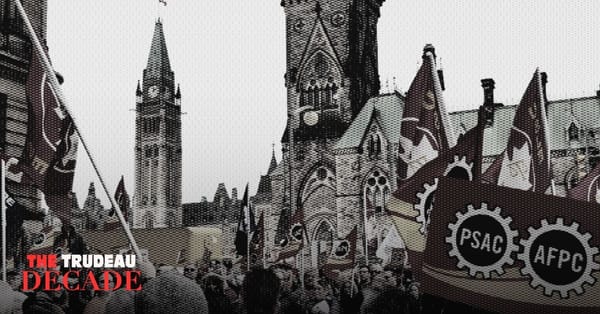In early December, Nicholas Kristof published an investigation in the New York Times about the way the popular pornography website, PornHub, hosts and profits from rape and child pornography videos.
Kristof’s article explored horrifying cases of the trafficking and rape of minors, and drew from the accounts of some survivors, who deeply suffered. More than one person that Kristof spoke with had attempted suicide, while another has died. At the end of the article, Kristof offers three solutions: “1.) Allow only verified users to post videos. 2.) Prohibit downloads. 3.) Increase moderation.”
Expectedly, Kristof’s article caused a commotion, as many people, including myself, shared the article expressing horror and dismay. Since publication, PornHub has disabled downloads, limited uploads and removed a great deal of its videos. Other companies were also encouraged to investigate their financial ties to PornHub.
However, some people on the left have opposed Kristof’s article due to a perception of it helping to form a sort of alliance with the Christian right’s “war on porn.” On Twitter, Kristof himself repeated a line he’d also iterated in his article: the issue is “not porn, it’s rape.”
This isn’t an unexpected response, as those put off by the Christian right don’t want to seem non-affirming when it comes to those subverting their sexual norms. And many of us are reluctant to be seen as sexual shamers or regressives. To put it in a perhaps ineloquent way, it isn’t cool to seem like you get your politics from a morning evangelical talk show.
The problem, however, is that the fundamental issue is not porn nor rape, because its root is economic rather than cultural. That isn’t to say that rape isn’t a problem, or that child pornography isn’t profoundly unethical. These are both issues that exist and deserve our attention.
Yet the problems that Kristof in particular is pointing to arise in an economic context that distributes power in a way that favours the profiting from, and mass consumption of, rape and abuse videos. Despite that though, and the fact that PornHub and its parent company, MindGeek, are some of the most powerful tech companies in the game, it seems like some leftists are defending the company in order to stick it to the right.
In light of this, the left should ask itself how exactly we got here?
The left is broad, but there is a general consensus that our current economic system is untenable, and that large corporations exploit worker vulnerability. Numerous leftist political frameworks, therefore, challenge powerful multinational corporations. When it comes to corporations that are in the business of profiting off sex in some form, however, things often get a bit more murky for many.
Most critiques of sex-related politics have historically come from the religious right, particularly when they were really in their prime in the ‘80s and ‘90s. Moral panic about sex loomed large in the Canadian and American popular imagination. This included panic about homosexuality, sex outside marriage, contraception and, of course, pornography. The popularity of right wing sexual panic remains today in groups like Fight The New Drug, although it’s arguable that liberals have more cultural power than they did decades ago.
Concerns with pornography, however, weren’t the sole domain of the right. There was, for example, a strategic alliance between second-wave feminists and the religious right in the ‘80s. In rallying against pornography in her day, radical feminist Andrea Dworkin spoke of engaging with right wing people that she found could be potentially valuable in that struggle, telling the New York Times in 1985, “When Jerry Falwell starts saying there’s real harm in pornograpy, then that is valuable to me.”
So, it has become difficult for people on the left to maintain its economic commitments enough to critique the pornography industry without getting aligned with the religious right, or an outdated and allegedly hysterical brand of feminism.
Pornography-related criticisms may also be difficult because we’re at a societal stage that is culturally liberal and economically capitalist. The sex industry does a great job at capturing these two elements of our current social and economic ordering. It combines market logic and commodification with something that’s traditionally been displeasing to social conservatives.
As such, some progressive people have been inclined to respond to Kristof’s article by saying that the harms done by PornHub were overstated. Would we say the same about other corporations found to exploit both workers and children? When companies are revealed to use child labour, we do not typically see progressive people jump in to claim that it’s not as bad as we think.
PornHub is not the first (nor will it be the last) corporation to downplay their sinister activities and signal their virtue. But despite this, and the history I’ve outlined, progressives could at least try to not be useful idiots for a tech giant that is currently being sued for non-consensual publishing, among other things.
One of the more popular responses I’ve seen to Kristof’s article from progressives is effectively ‘well, Facebook and other social media companies are worse.’ At one point, I saw a popular infographic circulating among leftists shaming those who shared a petition against PornHub’s alleged exploitative activities. One tweet included in this infographic read “hope everyone who shared that traffickinghub petition is pleased with themselves,” and claimed that Visa and Mastercard may now withdraw from porn altogether. Another called the backlash to PornHub a “witch hunt” and claimed that the company acts in “good faith.”
Many leftists, effectively, have been reacting to the aftermath of Kristof’s piece by claiming ‘the powerful capitalist entities like Visa and Mastercard don’t support my progressive cause, and it’s all the fault of concerned individuals,’ as opposed to asking why sexual liberation and the rights of sex workers are dependent on capitalist entities in the first place. This indicates that the left’s victory on the cultural front has come at the detriment of progress on the economic one.
Both Kristof’s framing of the problem (“rape not porn”) and popularly shared responses to his article from the online left indicate an increasing anxiety surrounding sexual discourse where the image of being liberated from conservatism is prioritized over traditionally left leaning economic struggles, such as attempting to at least restrict the power of large corporate entities.
MindGeek has a strong monopoly in both the production of pornography and its distribution. Ideally, the left would conceive of this problem as a worker’s struggle. It’s not merely a problem of rape, but that the power MindGeek and PornHub hold has allowed them to profit from exploitation and abuse for so long. Leftists should also be asking why so many workers are at the whim of major corporations like PornHub (and MindGeek, by extension).
There are perverse economic incentives in the sex industry that should be fair game for critique without shame. We shouldn’t be pushed into saying “it’s not porn, it’s rape” when the industry, under capitalism, is continuously and predictably giving rise to abuse. None of this is exclusionary to sex workers, but is in fact a pro-worker approach. When we critique Amazon’s labour practices, our target is Amazon executives and not its workers.
As long as the left prioritizes cultural victories over economic struggle, major corporations will continue to take advantage of vulnerable people as well as workers while conscripting progressives to be their advocates. To me, that’s a losing battle.






